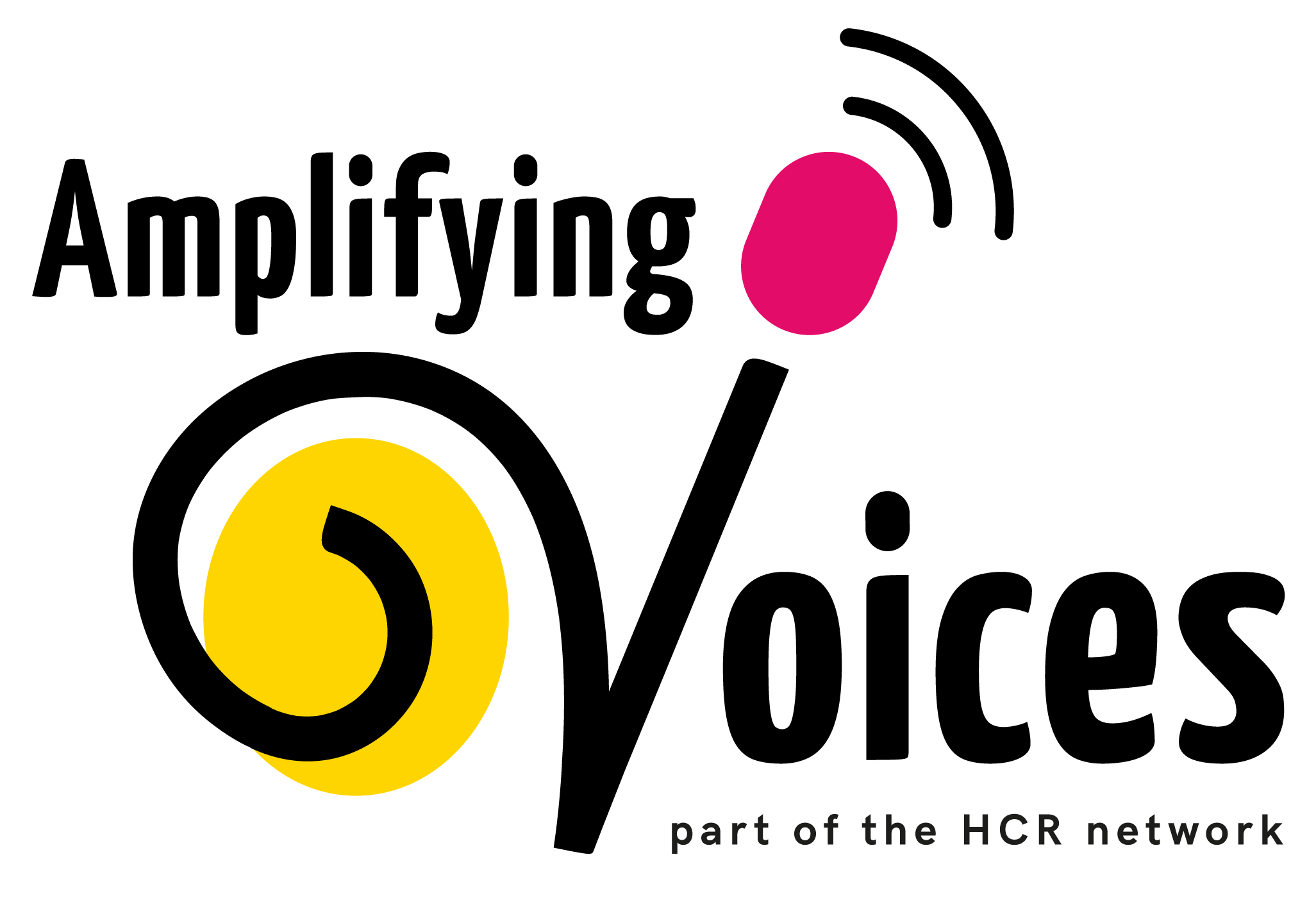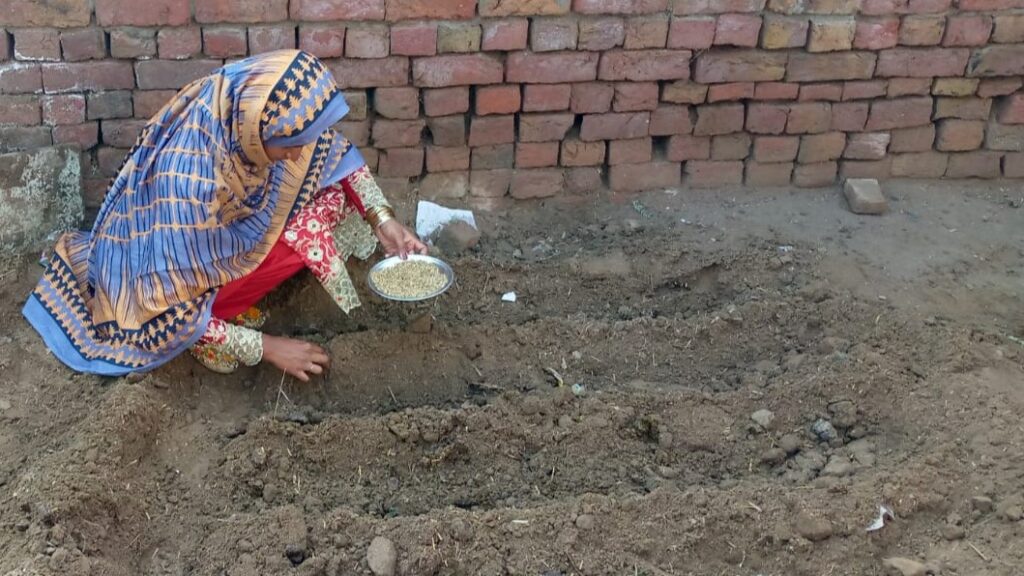
Amplifying with care
Through Bright Home groups, Amplifying Voices Pakistan promotes change at a pace that allows time for long-held cultural norms to adapt. We’ve talked previously about Bright Home, but as the projects develop, we discover new benefits from this way of working. This month I’ve been learning about Bright Home teams’ care-filled approach to amplifying voices for change.
Bright Home principles developed partly in response to lessons learned a few years ago in a different project where change started to happen too quickly. At that time, we had supported a youth group to make radio programmes about local social issues and injustices. At first, we were excited to hear how young people’s confidence and hope grew. Things could – and should – be different. However, some powerful people felt threatened and pressurised the project leader to stop. The fierce backlash forced the team to bring the project to an abrupt halt. They returned the equipment to us, and we were unable to continue any further activities in that community. Marginalised voices had become too loud, too fast.
A Bright Home approach
Hazeen Latif, CEO of Amplifying Voices Pakistan, told me that Bright Home projects take a different approach. Rather than starting with a media project, local partners provide sewing classes for young women and free medical camps focussing on women and children. These address some very pressing needs in a culturally acceptable way, developing traditional skills to earn income, and bringing healthcare to women and children who are rarely able to travel to a city for advice or treatment.
However, Bright Home classes are also places of conversation. Hazeen told me how, through conversation, aspirations are emerging and possibilities for change are growing. In one Punjabi community, conversations in the sewing classes about food shortages and lack of shade in summer led to a kitchen garden initiative and a tree planting campaign.
“Like my own daughter”
Some of these activities also improved community cohesion between minority Christian groups and people from the majority religion. The Bright Home team extended health camps and healthcare home visits beyond their own Christian community to work with women and children in majority religion homes. People from the majority religion responded, with one of their leaders donating money to buy medicines for the health camps. One older woman said of the Bright Home healthworker, “she is just like my own daughter”.
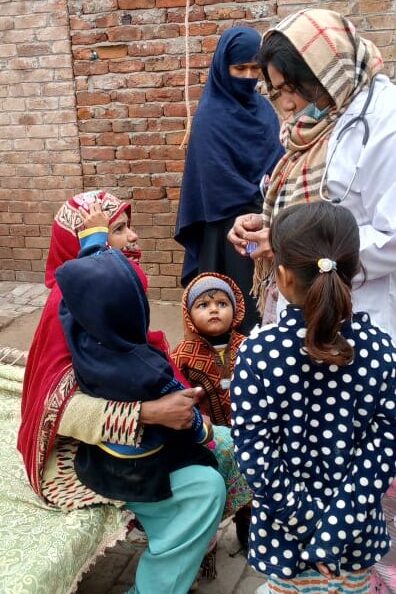
Home visits -supporting families across the community
The tree planting campaign gave men opportunity to get involved. Men from both communities came together to plant trees in public spaces and in each other’s home compounds. Both religions value good stewardship of creation, and in particular, they see tree planting as a virtuous activity.
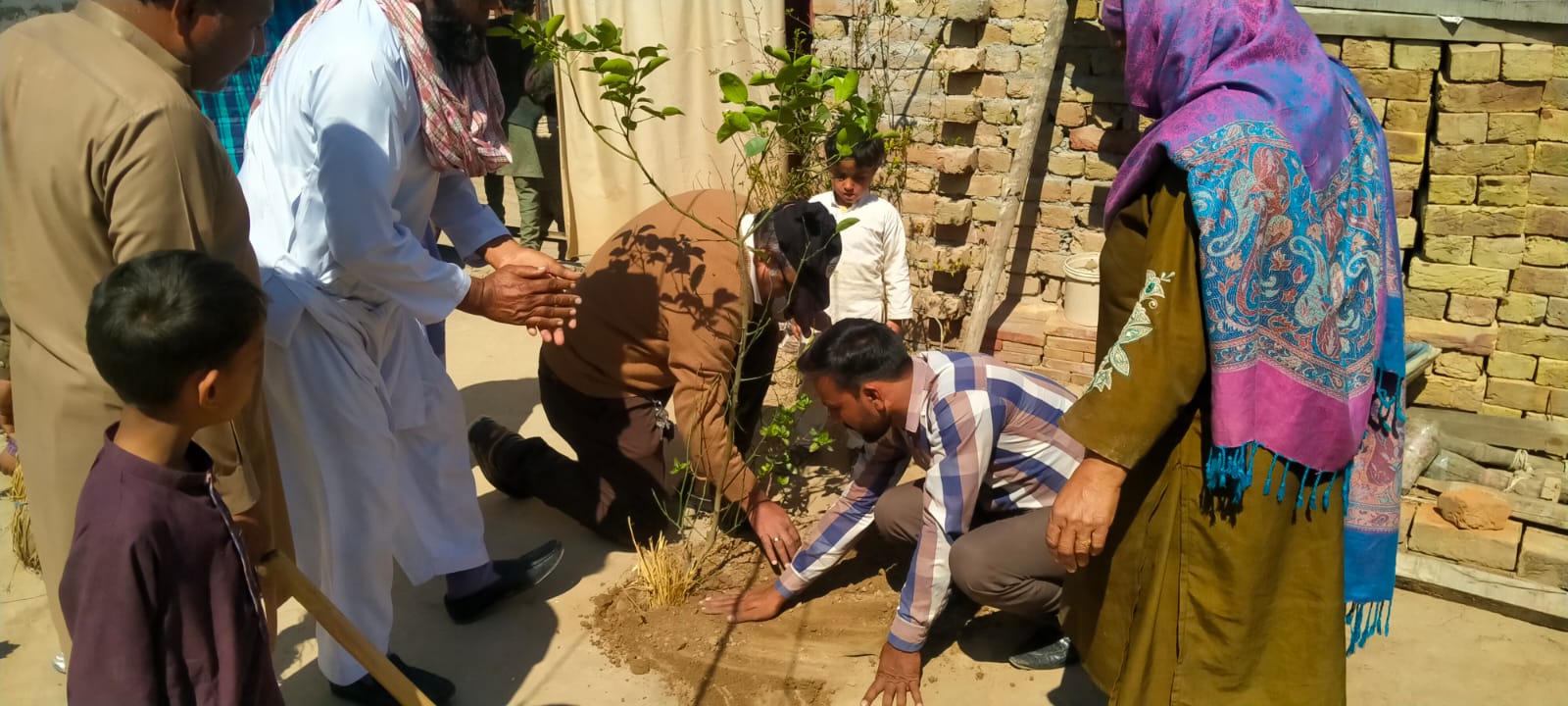
Coming together to plant trees, Punjab, 2024
“No one will harm you”
The sense of togetherness became very real after an incident in the regional city, Sargodha. Someone there had used religion as an excuse to provoke a mob attack on a Christian business. But in the village, leaders from the majority community came to the Bright Home team and said, “No one will harm you when we are sitting here”.
Instead of feeling threatened by the changes brought by Bright Home, people with power, whether through gender or through religion, have felt included and found themselves contributors to change.
“I am Light”
In KPK province, some of the young women attending a Bright Home class spoke up and said they wanted to learn to read, write and do arithmetic. In that community, many girls had not been allowed to go to school. However, the literacy and numeracy classes that are now underway are not perceived as a threat, because these skills are necessary for using sewing patterns, and for developing businesses to make money from the sewing skills. The girls called the literacy classes, “Zama Rana” (I am light).
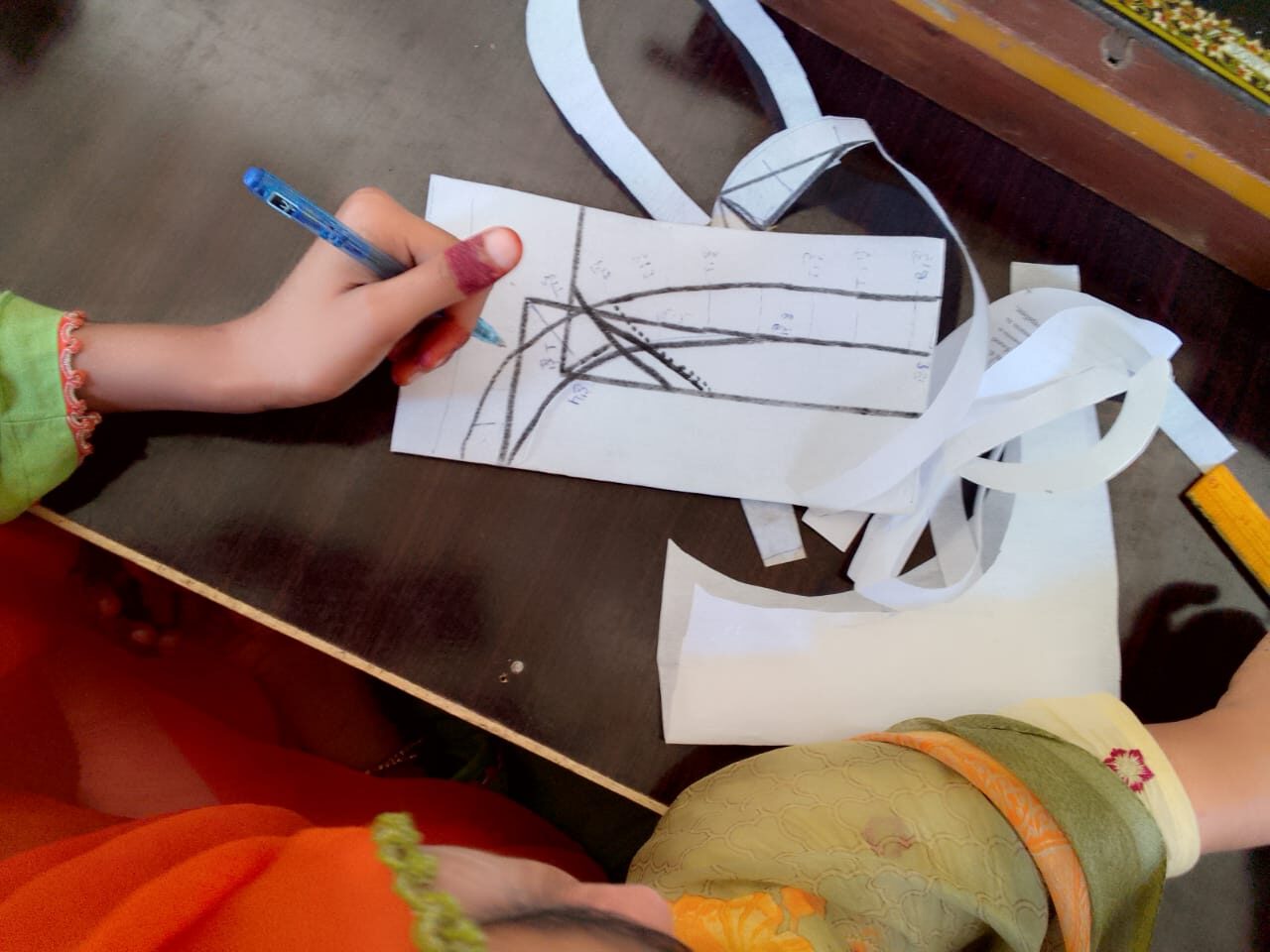
Working with sewing patterns, Nowshera
In each of the Bright Home groups, they use speakerboxes for listening to health advice programmes made in other Amplifying Voices projects. And in each place, some of the young women would ask to learn how to make speakerbox programmes themselves – “If they can do it, we can do it” – They start by discussing topics that are raised in the class setting. The programmes are played within the class to start with, but as confidence, skills, and local acceptance of the Bright Home activities have grown, some groups are now airing their programmes on local FM stations.
Some people may still oppose changes, especially those that offer opportunity and influence to young women in very conservative communities. However, there are now more who support the changes, who even help to make change happen. Bright Home communities are able to amplify local voices, because they do so with care.
